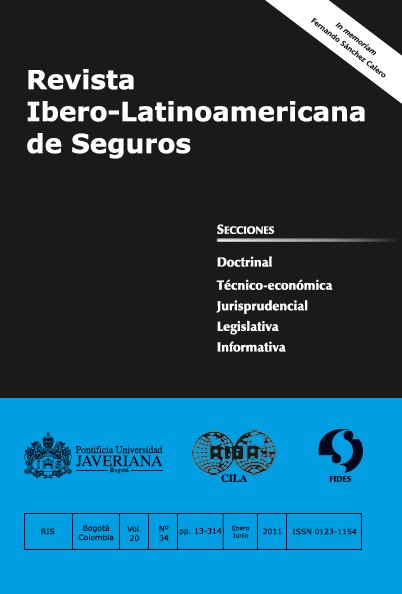Abstract
The recent Judgement of the European Court of Justice (Grand Chamber) of 1 March 2011, in case C-236/09 (Association belge des Consommateurs Test-Achats ASBL, and other v. Conseil des ministres) imposes an absolute rejection of the use of sex as a determining factor in the assesment of risk and the setting of individuals' premiumns and benefits in private insurance contracts. In the view of the authors, the Judgement constitutes an undesirable development in the acquis of EU anti-discrimination law and, most vertainly, in the technical regulation of insurance mechanisms. After setting the analytical grounds on the insurance risk (or aleas), its assesment and evaluation (even by indirect means) through statiscical methods, the authors clearly criticise the ECJ Judgment of 1 March 2011 and advocate for and justify the capital importance of the use of sex as a determining factor in the assessment of risk and setting of infividuals' premiums and benefits in private insurance contracts.This journal is registered under a Creative Commons Attribution 4.0 International Public License. Thus, this work may be reproduced, distributed, and publicly shared in digital format, as long as the names of the authors and Pontificia Universidad Javeriana are acknowledged. Others are allowed to quote, adapt, transform, auto-archive, republish, and create based on this material, for any purpose (even commercial ones), provided the authorship is duly acknowledged, a link to the original work is provided, and it is specified if changes have been made. Pontificia Universidad Javeriana does not hold the rights of published works and the authors are solely responsible for the contents of their works; they keep the moral, intellectual, privacy, and publicity rights.
Approving the intervention of the work (review, copy-editing, translation, layout) and the following outreach, are granted through an use license and not through an assignment of rights. This means the journal and Pontificia Universidad Javeriana cannot be held responsible for any ethical malpractice by the authors. As a consequence of the protection granted by the use license, the journal is not required to publish recantations or modify information already published, unless the errata stems from the editorial management process. Publishing contents in this journal does not generate royalties for contributors.


